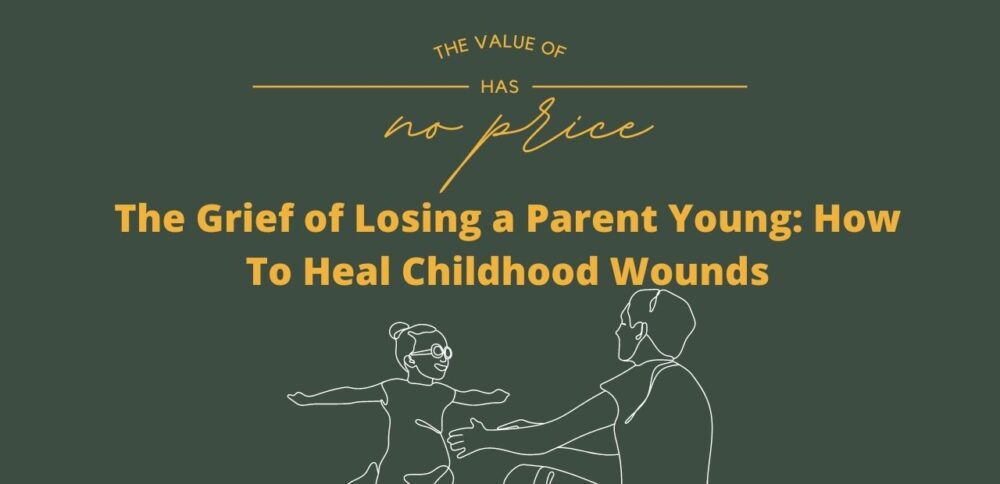This post was developed via a partnership with BetterHelp.
If you’re an adult who lost your parent at a young age, you may still struggle with traumatic memories and feelings of sadness and grief. You may feel that suppressing these emotions is the best way for you to get through them. However, healing the childhood wounds that come with this type of grief is the most beneficial option.
Losing a parent when you’re a child is highly traumatic. Children are still growing and developing both mentally and physically. In the event of an unexpected or violent death, this trauma can be even worse. Let’s look at how you can heal these wounds from your childhood as an adult.
Find a Trauma or Grief Therapist
If you find that a lot of your attachment wounds and inner self are hurting due to the death of your parent when you were a child, a trauma therapist is an excellent option for you.
Trauma therapy allows you to process the wounds your inner child has gone through. It will help validate your feelings from the death of your parent. If you feel it was your fault or that you could’ve done something to change it, they’ll help you understand why it isn’t your fault and how you can accept the death.
Grief therapy is a similar option. A grief therapist can talk to you about the lingering grief and trauma you may be feeling from losing your parent. Grief therapy can also often be done in tandem with art therapy for those who have difficulty talking about emotions.
Both a grief therapist and a trauma therapist should be able to validate you and make you feel safe. If someone tells you that you’re too old or that it has been too long for you to still feel upset, they’re not a good or safe person.
Create a Tradition
A great way to heal the feeling of emptiness you may feel from not having your parent in your life is to create your own traditions as an adult. Now that you are an adult, you can make holiday traditions, traditions with your kids, traditions with your partner, and even traditions to mourn a loss or celebrate the life of your parent.
Some examples of traditions that may help you include:
- Writing a letter to your deceased parent on their death anniversary
- Going to your deceased parent’s favorite nature spot on their birthday and drawing
- Going out to dinner with your family on a special day to celebrate the life of your deceased parent
- Baking a cake or a delicious dessert and lighting a candle for them on a holiday
- Creating a holiday tradition in memory of your deceased parent
No matter what the tradition is, finding something that can help you feel connected to the person throughout the rest of your life can be highly healing.
Connect With Family
Connecting with your family on your deceased parent’s side can help you feel more connected to them as well. Ask family members who were in the person’s life for more time to tell you stories about your parent as a child, teen, or young adult. Ask around to see if anyone has keepsakes or memories to share of your parent.
You can also foster and build new relationships with people you may not have got to know very well before. Include your parent’s family in your traditions and allow them to help you mourn and grieve. Family is one of the most important things when it comes to loss.
If you don’t have family or the family of your parent is not very healthy, you can turn to your own family for support. A partner or a special group of friends can all count as family, even if you don’t have children.
Be the Parent You Always Needed
If you do have children, one way to heal your inner child and the trauma you went through is by being the best parent you can be and showing your children that you’re here for them.
You may want to also teach your children about death and what it means. You can tell them your story and share memories with them about their grandparent that passed. Reminding children that death can happen to anyone of any age can be helpful. However, you want to make sure they’re emotionally ready to hear about this topic.
Hiding things from your children can make them feel like you’re not trustworthy. However, you don’t have to give them all the adult details. Remember that you were a child when your parent died, and you still had to deal with the trauma that it caused. Children who are prepared and understand death may have an easier time if it were ever to happen to their parents as well.
Allow Yourself to Feel
Remember that it’s normal and okay to feel grief after many years. You will most likely feel grief for your entire life, even if it isn’t as often or as strong as it was in the beginning.
If you had to close off your emotions as a child and weren’t allowed to feel your grief, you might find that you start to feel it more strongly and more intensely as an adult. This reaction is also normal. Don’t judge yourself for the feelings that come up.
If you’d like to learn more about grief and how it works in the body, check out BetterHelp. They’re one of the leading providers of online mental health care and have tons of advice.

